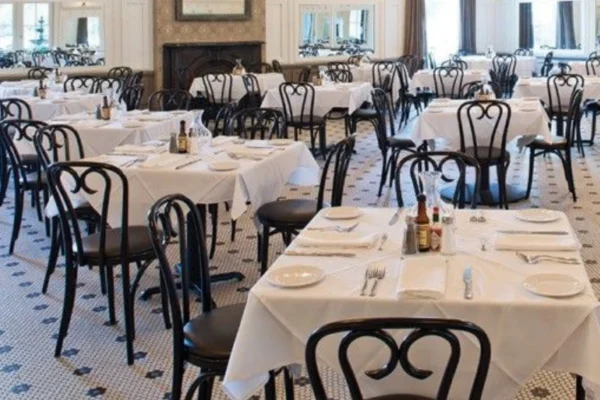In a city famous for its jazz, food, culture, and festivals, there is another, often overlooked, treasure embedded deep within its cobblestone streets and shotgun houses—generational entrepreneurship. For many families in New Orleans, business is more than just a source of income; it’s a way of life, a heritage passed down like cherished recipes or heirloom furniture. The Family Business: New Orleans represents not only economic resilience but also a vibrant cultural legacy that continues to evolve through time.
Whether it’s a po’boy shop handed down from a grandfather, a jazz club owned by siblings, or a voodoo boutique that spans three generations, The Family Business: New Orleans captures the essence of a city where commerce and culture dance together in a never-ending second line. This article explores how family-run businesses have shaped the economic and cultural landscape of New Orleans and why their survival is so essential in 2025 and beyond.
A Legacy Rooted in History
New Orleans has long been a city built on diversity, resilience, and ingenuity. From the French Quarter to the Garden District, the city’s architecture and atmosphere tell stories of settlers, slaves, immigrants, and entrepreneurs. It’s no surprise that The Family Business: New Orleans has roots that run deep.
For generations, families in New Orleans have been turning passions into professions. In the 19th and 20th centuries, many Creole, Cajun, African-American, Italian, and Irish families opened corner stores, bakeries, tailoring shops, or fishing businesses. These enterprises not only served their communities but also became crucial lifelines of survival and independence, especially during times of segregation or economic hardship.
The Family Business: New Orleans isn’t just an economic activity—it’s part of the city’s DNA.
The Culinary Backbone of Family Legacy
If there’s one industry where The Family Business: New Orleans shines brightest, it’s in the food scene. Generational restaurants like Dooky Chase’s, Galatoire’s, and Willie Mae’s Scotch House are more than eateries—they are institutions.
These restaurants serve recipes passed down through generations and remain grounded in the traditions of Creole, Cajun, and Southern cuisine. What makes them special isn’t just the food, but the stories, the photographs on the wall, the servers who’ve worked there for decades, and the families who continue to keep the flame alive.
In this way, The Family Business: New Orleans becomes a bridge between the past and present, feeding not only stomachs but also souls.
Music and Merchants: A Jazz-Fueled Economy
New Orleans is the birthplace of jazz, and the business of music in this city is often a family affair. From musicians to venue owners to record shopkeepers, The Family Business: New Orleans thrives in the soundscape of the city.
Families have owned and operated historic music venues like Tipitina’s and Preservation Hall for decades, passing them down like cherished instruments. Even second-hand record stores, saxophone repair shops, and street performance corners often have a family behind the scenes managing every beat.
These family businesses don’t just preserve a music tradition—they actively contribute to it. And in doing so, The Family Business: New Orleans proves that keeping it in the family doesn’t mean staying stuck in the past. Instead, it means evolving while honoring legacy.
Tourism: Sustaining Generations of Entrepreneurs
Tourism is a major economic driver for the city, and family businesses play a central role. Whether it’s a family-owned bed and breakfast in the Marigny, a decades-old swamp tour company, or a handmade souvenir boutique in the French Market, The Family Business: New Orleans powers the visitor experience.
These enterprises aren’t faceless corporations—they’re often run by proud locals who know the city’s history, quirks, and secrets. Guests don’t just leave with souvenirs; they leave with stories, connections, and memories forged by warm, generational hospitality.
In this sense, The Family Business: New Orleans isn’t just sustaining families—it’s sustaining the city’s global appeal.
Modern Startups with Old-World Values
It’s not all antiques and tradition. A new generation of entrepreneurs is reinventing The Family Business: New Orleans for the modern era. From tech-savvy kids helping their parents launch social media pages to next-gen leaders converting mom-and-pop shops into sustainable brands, family businesses are adapting to 2025’s digital age.
Startups in sectors like design, fashion, and wellness are now part of the family business narrative. A local soap company started by a grandmother might now sell nationwide through e-commerce thanks to her grandchildren. A spice blend first sold at the market might now be featured on a YouTube cooking channel.
In this digital transformation, The Family Business: New Orleans proves that family values and innovation aren’t mutually exclusive.
Challenges Facing Family Businesses in 2025
While the tradition remains strong, family businesses in New Orleans face modern challenges:
-
Rising Real Estate Costs: Gentrification is pushing many traditional businesses out of their historic neighborhoods.
-
Hurricane Recovery & Climate Risk: Natural disasters remain a constant threat to stability.
-
Succession Planning: Younger generations may move away or seek different careers.
-
Corporate Competition: Big chains and online services create fierce competition.
-
Technology Gaps: Some older business owners struggle to adapt to digital platforms.
But even amid these challenges, the spirit of The Family Business: New Orleans endures. Many families are finding innovative ways to pivot, such as turning to co-ops, forming alliances with local organizations, or embracing hybrid business models.
Women and BIPOC Leaders in Family Entrepreneurship
It’s essential to highlight the women, Black, Indigenous, and people of color who have been at the forefront of The Family Business: New Orleans. These entrepreneurs often face additional systemic challenges yet continue to lead with resilience, pride, and purpose.
Black-owned funeral homes, Latina-run restaurants, and Vietnamese-owned corner stores are part of the intricate tapestry of family businesses across the city. Their stories reflect the broader fight for representation and economic justice in the American South.
In 2025, more programs are supporting these entrepreneurs through grants, mentorships, and digital training, ensuring that The Family Business: New Orleans remains inclusive and diverse.
Education and Youth Engagement
To keep traditions alive, it’s vital to engage the younger generation. Across the city, initiatives and nonprofits are working to teach kids the value of entrepreneurship, storytelling, and community-based business.
In schools and community centers, youth are learning how to balance business with heritage—how to run a beignet stand and also share its history. This ensures that The Family Business: New Orleans isn’t something that fades away, but something that evolves with each generation.
Cultural Preservation Through Commerce
Commerce isn’t just about money—it’s about meaning. The Family Business: New Orleans helps preserve languages, traditions, recipes, music styles, and more. It becomes a vessel through which identity is carried forward.
From Mardi Gras Indians who craft intricate suits through family traditions, to Creole chefs preserving ancestral recipes, to brass bands made up of generations of musicians, each enterprise carries history in its hands.
And by supporting The Family Business: New Orleans, customers don’t just shop local—they invest in culture, resilience, and history.
Why The Family Business: New Orleans Matters More Than Ever
In a world dominated by globalization, automation, and algorithms, human connection has become a rare currency. The Family Business: New Orleans reminds us of the value of community, storytelling, craftsmanship, and continuity.
These businesses are more than economic entities—they’re living museums, creative incubators, and cultural hubs. They help maintain the soul of a city that’s known for its spirit, rhythm, and flavor.
In 2025, supporting family businesses in New Orleans isn’t just good economics—it’s a statement of values. It’s about protecting what makes this city irreplaceable.
Conclusion
The story of The Family Business: New Orleans is ultimately one of love—love for craft, for culture, for community, and for continuity. Whether it’s a bakery in Treme, a bookstore in the Bywater, or a spice shop in the French Quarter, these businesses carry more than inventory—they carry legacy.
As we look ahead, it’s crucial to celebrate, support, and sustain this tradition. The city’s future doesn’t lie in franchises or fleeting trends—it lives in the hands of families who have made business their birthright.
By embracing and investing in The Family Business: New Orleans, we preserve the essence of a city that refuses to lose its soul, no matter how much the world changes.








